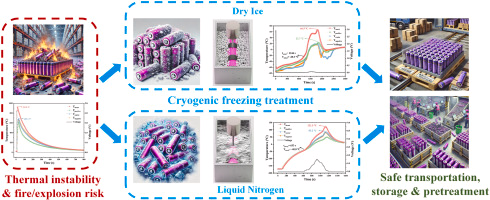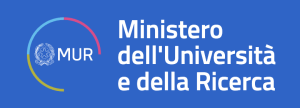In this page only the peer-reviewed publications about CARAMEL project are reported (they are also available in SCOPUS).

- 1. Recent improvements in salt-assisted and microwave-assisted recovery methods for sustainable metal extraction from NCM cathodes in spent lithium-ion batteries: a review,Separation and Purification Technology, Volume 363, Part 1, 14 August 2025, 131918 (https://doi.org/10.1016/j.seppur.2025.131918)
- Abstract: The increasing adoption of electric vehicles has generated a pressing need for sustainable management of end-of-life lithium-ion batteries (LIBs), particularly those utilizing nickel-rich layered oxide cathodes (NCM). This review critically examines recent advancements in recycling technologies, focusing on innovative methods such as salt-assisted roasting and microwave-assisted thermal treatments, as well as their combined applications. These approaches demonstrate promising potential to enhance the selective recovery of critical metals like lithium, nickel, cobalt, and manganese, while addressing environmental and economic challenges. Additionally, the review highlights sustainability assessments and identifies key gaps in the current literature, emphasizing the need for integrated strategies to minimize energy consumption and environmental impact. By providing a comprehensive analysis of these emerging recovery methods, this work aims to guide future research and industrial adoption, contributing to a circular economy for LIBs.
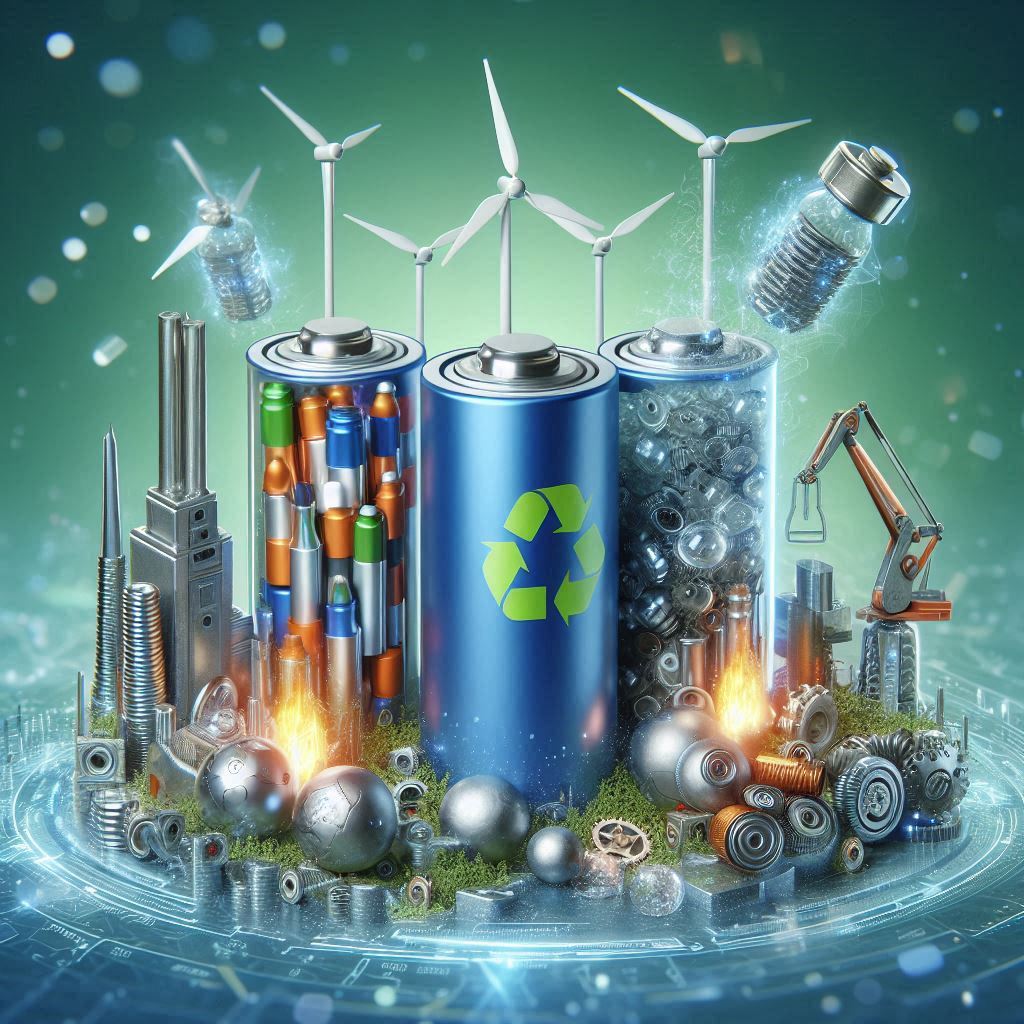
- 2. Sample preparation procedures for elemental analysis of critical raw materials in lithium-ion battery black mass: Challenges responding to the supplementary battery recycling regulation, Journal of Environmental Management, Volume 380, April 2025, 124973 (https://doi.org/10.1016/j.jenvman.2025.124973).
- Abstract: Accurate assessment of black mass (BM) composition is critical for implementing the European Commission’s proposed methodology for calculating and verifying recycling efficiency and material recovery from waste lithium-ion batteries (LIBs). BM, derived from spent LIBs, presents analytical challenges due to its complex matrix and high-carbon content, which can impede complete dissolution and bias recovery calculations. Incomplete BM digestion and inconsistencies in analytical methods can lead to overestimated recycling efficiencies. This study evaluates and optimizes sample preparation strategies, including digestion protocols and analytical techniques, to reliably extract and quantify critical metals such as lithium, cobalt, nickel, and manganese. To address these issues, we propose standardized digestion procedures and highlight the suitability of techniques like TXRF, which mitigate matrix effects and enhance data reliability. This research underscores the importance of defining clear standards and methodologies in the regulatory framework, ensuring that reported recovery rates accurately reflect true recycling efficiencies. Finally, this work proposes some regulatory and policy improvements, intending to better align with the EU’s sustainability goals, promoting reliable data, advancing circular economy objectives, and supporting the broader energy transition.
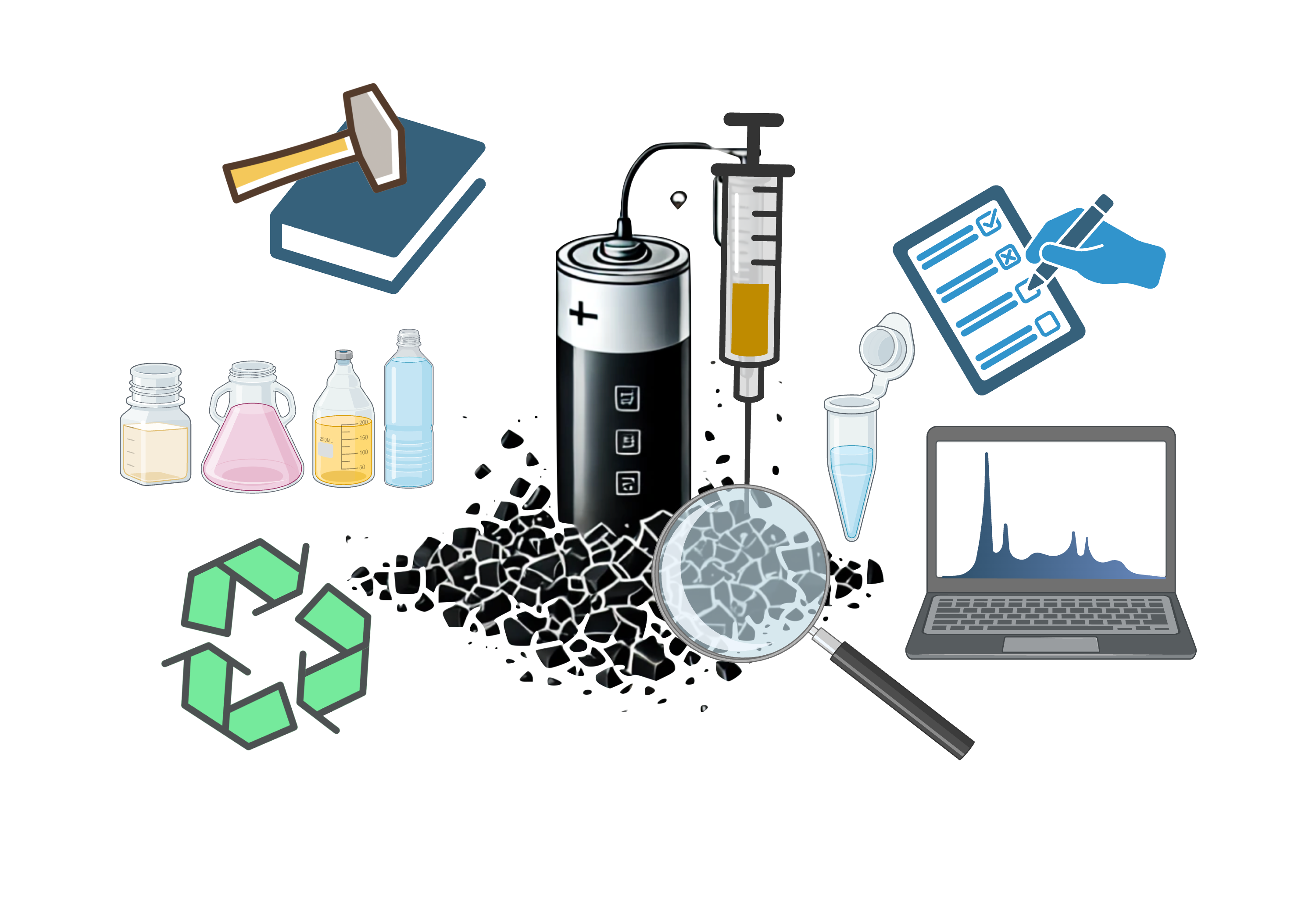
- 3. Determination of lithium concentration in black mass using laser-induced breakdown spectroscopy hand-held instrumentation, Scientific Reports, 15 Article number: 17483 (2025), (https://doi.org/10.1038/s41598-025-90379-4https://doi.org/10.1038/s41598-025-90379-4).
- Abstract: Lithium has become one of the most strategic materials in the industry, given its wide use for the realization of efficient energy storage devices and for improving the chemical and physical characteristics of advanced ceramic and glass materials. Its widespread use in the last decades has also posed problems for its recovery and recycling, mostly from exhaust Li-ion batteries, which are mechanically treated to obtain the black mass. The black mass is a carbon-based material derived from the cathodic and anodic components of the batteries, containing several metals, as for example cobalt and nickel, along with lithium in varying quantities. Therefore, it is important to develop fast and accurate techniques for determining the black mass composition. This information is also essential for optimizing the extraction processes of lithium or other metals from the black mass. In this paper, we employ automated data processing using an Artificial Neural Network (ANN) to analyze spectra acquired from black mass equivalent materials with a commercial hand-held Laser-Induced Breakdown Spectroscopy (LIBS) instrument, enabling the determination of lithium content from a minimal set of spectral features. Additionally, we compare the results obtained for real black mass with reference values from other elemental analysis techniques. The combination of the ANN algorithm speed and robustness with the reliability of the LIBS instrument demonstrates the feasibility of accurate determination of the lithium content in black mass with a minimum treatment of the samples and on very different matrices.
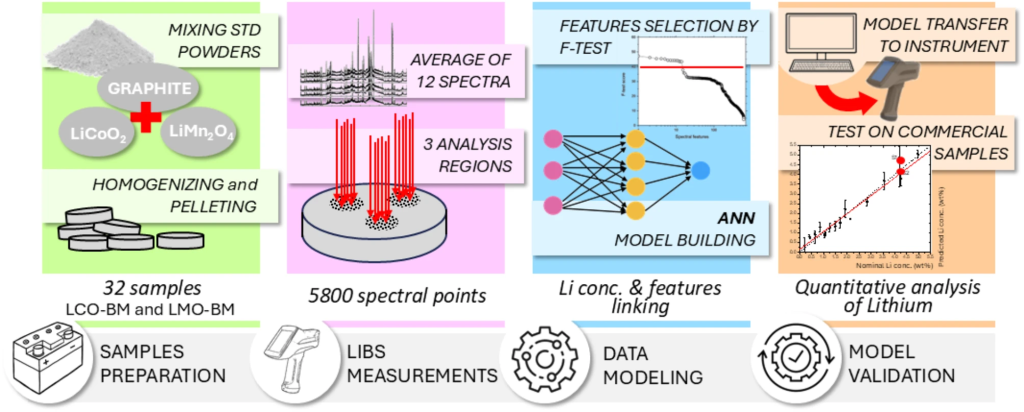
- 4. Exploring the viability of cryogenic freezing for safe pretreatment in lithium-ion battery recycling,Renewable Energy Volume 252, 15 October 2025, 123481, Renewable Energy Volume 252, 15 October 2025, 123481 (https://www.sciencedirect.com/science/article/abs/pii/S0960148125011437)
- Abstract: Recycling of massive spent lithium-ion batteries (LIBs) is urgently required with the development of electric vehicles and energy storage industries. However, due to their complex composition and uncertain state, spent LIBs pose significant fire hazards during the recycling process. In this work, liquid nitrogen (LN) and dry ice (DI) were utilized as refrigerants to investigate the inerting mechanism and thermal stability of spent LIBs. Post-mortem and thermal analyses indicated that when spent LIBs are subjected to low temperatures (below −60 °C), the solidification of the electrolyte and the separation of internal components cause an increase in internal resistance, leading to a drop in terminal voltage where it cannot deliver energy. Nail penetration tests demonstrated that cryogenic freezing effectively suppresses thermal runaway, reducing peak internal battery temperatures from 921.2 °C to below 150 °C, with a temperature rise rate suppressed to under 3 °C/s. Additionally, DI exhibited a more sustained cooling effect than LN and is proposed as a safer and more cost-effective alternative for enhancing safety in LIBs recycling.
